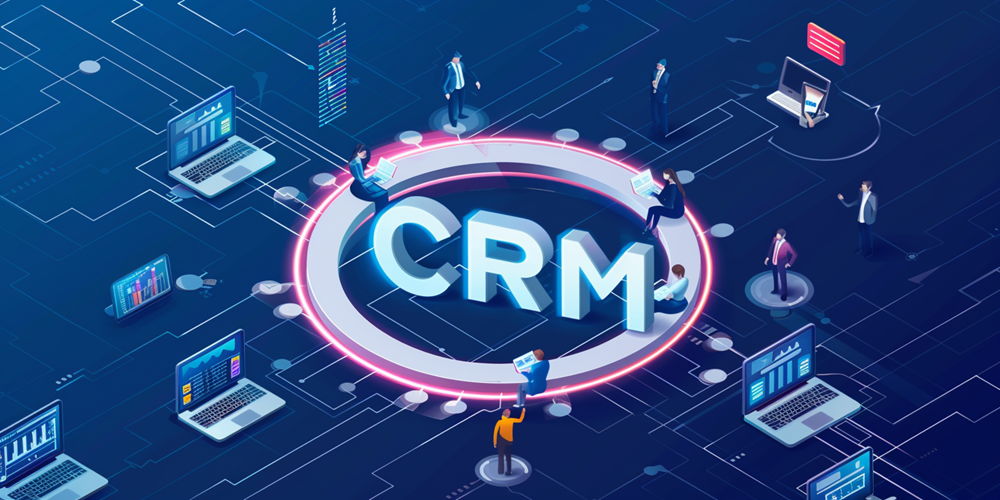When it comes to selecting a Customer Relationship Management (CRM) platform, businesses are often faced with choosing between two giants: Salesforce and HubSpot. This article delves into the strengths, weaknesses, and key differences between these prominent CRM solutions. By evaluating various dimensions, including history, features, target audience, pricing, usability, strengths and weaknesses, and case studies, businesses can make an informed decision about which platform suits their needs best.
History and Background
Established in 1999, Salesforce is celebrated for pioneering the Software-as-a-Service (SaaS) model and has grown to offer an extensive range of business solutions. On the other hand, HubSpot, founded in 2006, initially served as a marketing automation tool before evolving into a comprehensive CRM solution. HubSpot is well-known for its inbound marketing philosophy, which has significantly influenced its design and functionality.
Features and Capabilities
Salesforce sets itself apart with a vast array of tools, including Sales Cloud, Service Cloud, Marketing Cloud, and Commerce Cloud. These features cater to large enterprises through highly customizable and scalable solutions designed to handle complex business processes. Conversely, HubSpot integrates its Marketing Hub, Sales Hub, Service Hub, CMS Hub, and Operations Hub into a user-friendly platform. This seamless integration makes HubSpot more accessible for small to mid-sized businesses, offering robust features without the complexity often associated with larger systems.
Target Audience
Salesforce primarily targets large enterprises and mid-sized businesses that require solutions for intricate processes and industry-specific needs. Its extensive customization and advanced capabilities make it suitable for organizations with complex operational demands. In contrast, HubSpot is designed with small to mid-sized businesses, startups, and marketing teams in mind. Its ease of use, affordability, and powerful yet straightforward features make it an ideal choice for these groups.
Pricing
The pricing models of Salesforce and HubSpot reflect their target audiences and feature sets. Salesforce operates on a per-user/month pricing model, with costs rising for advanced features. This makes it an investment-heavy option, more suitable for larger organizations. HubSpot, however, offers a free CRM version, with additional features available at competitive prices. This budget-friendly approach makes it particularly appealing to smaller businesses looking to maximize value without overspending.
Usability and User Experience
Salesforce is renowned for its high level of customization, but this comes at the cost of complexity and often requires technical expertise for full utilization. This results in a steeper learning curve for new users. In contrast, HubSpot is designed with ease of use in mind. Its intuitive interface, quicker setup, and extensive support resources ensure a smoother and faster adoption process for businesses. This focus on user experience is a significant advantage for smaller teams without dedicated IT resources.
Pros and Cons
Salesforce’s primary strengths include its high customization potential, extensive feature set, scalability, and advanced analytics capabilities. However, these benefits are offset by its complexity, higher cost, longer implementation time, and potential user interface challenges. HubSpot, on the other hand, shines with its user-friendly design, integrated tools for marketing and sales, cost-effectiveness, and strong training resources. Its drawbacks include limited customization, feature limitations at lower subscription tiers, and potential scalability issues for very large enterprises.
Case Studies
Real-world applications of these CRMs further highlight their strengths. Salesforce has been effectively utilized by Coca-Cola Enterprises and Adidas to manage complex sales operations and marketing campaigns. These case studies demonstrate Salesforce’s capability to handle large-scale projects with high levels of customization. Meanwhile, companies like Mention Me and Trello have successfully implemented HubSpot to streamline their sales processes and enhance marketing efforts, showcasing HubSpot’s suitability for smaller, agile teams.
Decision-Making Factors
When deciding between Salesforce and HubSpot, businesses should consider several factors. For large enterprises with complex needs, Salesforce’s extensive customization and advanced features may be worth the higher cost and longer implementation time. For smaller businesses, startups, or those seeking a budget-friendly solution, HubSpot’s ease of use, affordability, and seamless integration of marketing and sales tools are compelling reasons to choose this platform. The ability to quickly adopt and effectively utilize the CRM can significantly impact a business’s efficiency and growth.
Summary
Choosing a Customer Relationship Management (CRM) platform often boils down to a tough decision between two industry leaders: Salesforce and HubSpot. This article explores the unique features, advantages, and shortcomings of these renowned CRM solutions. To make an informed choice, it investigates several key factors, including the platforms’ histories, functionalities, target audiences, pricing structures, user-friendliness, strengths, weaknesses, and real-world case studies. By comparing these aspects, businesses can determine which CRM platform aligns best with their particular requirements and goals.
Salesforce is known for its robust capabilities and extensive customization options, making it a popular choice for larger enterprises and complex operations. On the other hand, HubSpot is celebrated for its ease of use and affordability, particularly appealing to small to medium-sized businesses looking for an all-in-one solution. Each platform offers unique benefits and challenges, so understanding these nuances can help businesses decide which CRM will most effectively enhance their customer relationship strategies.

